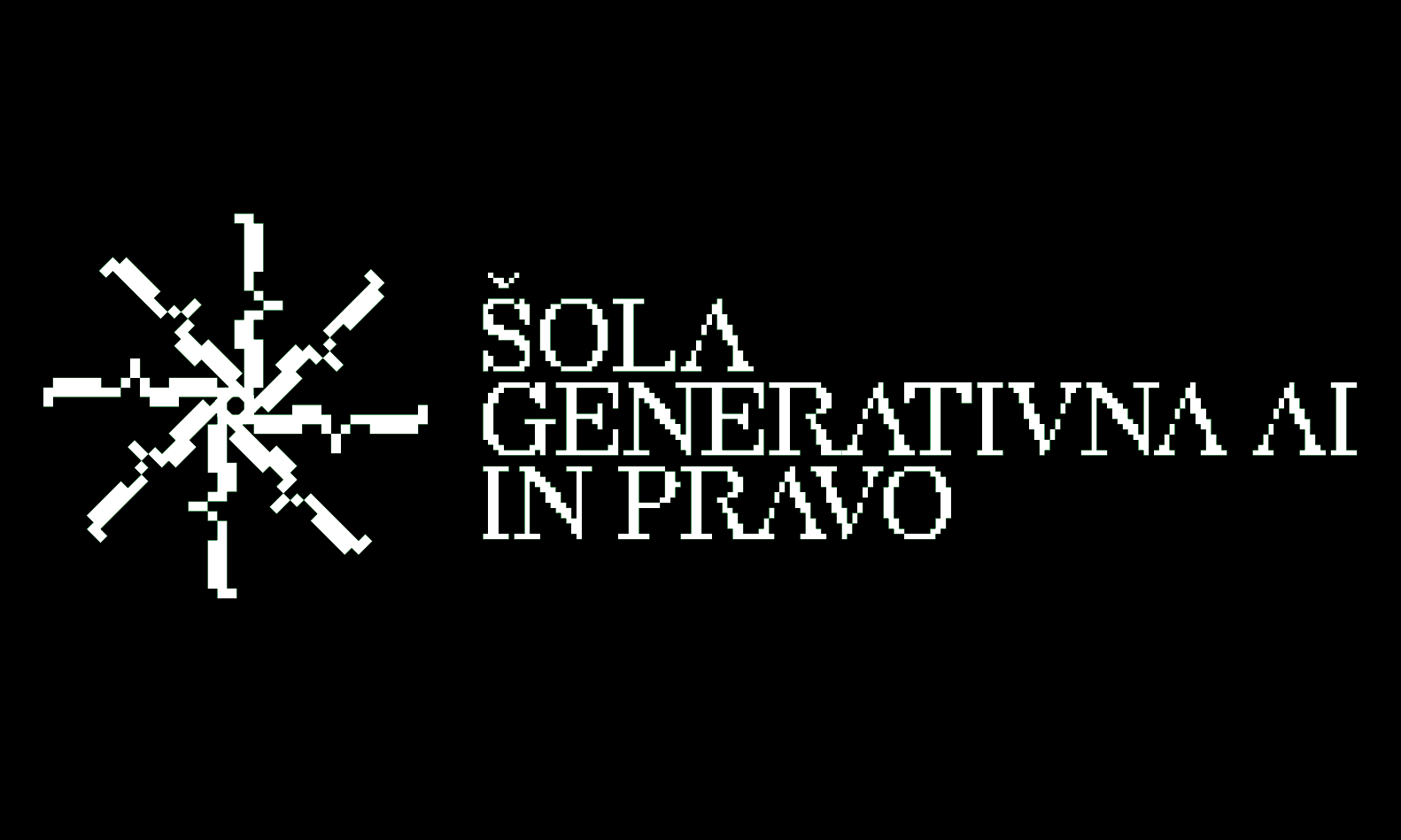Launch of the school of Generative AI and Law at the Faculty of Law, University of Ljubljana
The Generative AI and Law School, whose honorary patron is the President of the Republic of Slovenia, Dr. Nataša Pirc Musar, will start on Thursday, 16 November 2023 at 17.00 in the Red Lecture Hall of the Faculty of Law, University of Ljubljana, Poljanski nasip 2, 1000 Ljubljana. Registration for all participants will take place from 16.30 to 17.00 in front of the red lecture hall, so we kindly ask all participants to arrive on time on the day of the event.
Over 120 participants applied for the Generative AI and Law School, where we awarded 90 scholarships with the help of our gold supporters Celtra and Senica Law Firm, and silver supporters NLaw, Outbrain, Silicon Gardens, VBG and Aleph. These funds enable students to attend for free and support professional development in the field of AI and law.
The programme of the first meeting of the School includes a lecture by Prof. Dr. Blaž Zupan from the Faculty of Computer Science and Informatics at UL on “How does technology work?”. Afterwards, there will be a round table discussion on the advantages and disadvantages of AI, moderated by Nina Slaček, journalist of Radio Slovenia’s first programme. The guests of the round table will be Prof. Dr. Blaž Zupan, Faculty of Computer Science and Informatics, UL, Dr. Maja Bogataj Jančič, ODIPI, Mag. Dusan Omerčević, founder of Cleanshelf and investor in AI, Filip Dobranić, Institute for Contemporary History and Today is a New Day, Institute for Other Issues, and Uroš Cvetko, Celtra.
On December 3, 2024, the “Knowledge Rights 21 Regional Alliance – Network of Librarians and Copyright Experts from Central and Southeastern Europe”, was officially established at a meeting hosted at the Four Points by Sheraton Ljubljana Hotel. The event was organized by Open Data and Intellectual Property Institute ODIPI and chaired by Dr. Maja Bogataj Jančič.
Recordings and presentations from all speakers at the ERA KR21 Conference Slovenia are now available on the subpage “Recordings and PPTs of Presentations by Speakers”.
Open Data and Intellectual Property Institute ODIPI invites you to a discussion organized by the European Commission Representation in Slovenia titled “Democracy in the Grip of Disinformation: What Can the EU Do?”. The event will take place on Friday, December 13, 2024, from 11:00 to 12:30 at the House of the EU in Ljubljana, Slovenia and online.
Open Data and Intellectual Property Institute ODIPI organized the ERA KR21 Conference Slovenia on December 2, 2024, with the support of the Ministry of Higher Education, Science, and Innovation of the Republic of Slovenia and the Knowledge Rights 21 (KR21) program. The Conference focused on addressing the most pressing issues in copyright regulation in the fields of science and Open Science within the European Union (EU), with particular emphasis on barriers and incentives for Open Science in copyright law. The event represented the contribution of the Government of the Republic of Slovenia to implementing European Research Area (ERA) Policy Agenda Action 2, which focuses on creating a supportive EU legislative framework for copyright and data governance.





